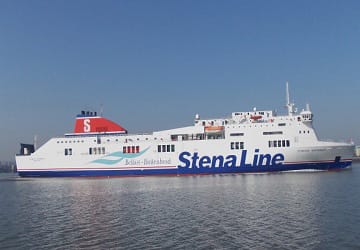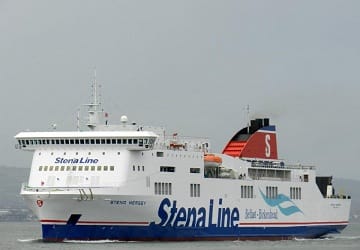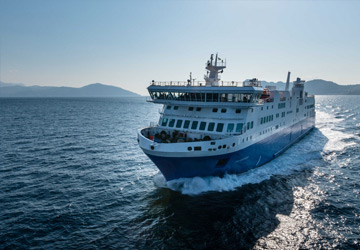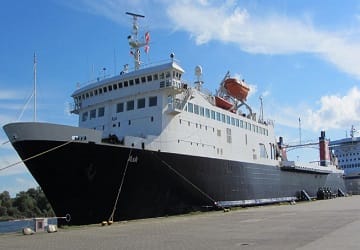
-
Recent Searches
Recent Searches
- Travel Alerts
- My Account
- Customer Service
-
United Kingdom
Liverpool Birkenhead to Belfast Ferry
The Liverpool Birkenhead Belfast ferry route connects England with Northern Ireland. Currently there is just the 1 ferry company operating this ferry service, Stena Line. The crossing operates up to 14 times each week with sailing durations from around 8 hours.
Liverpool Birkenhead Belfast sailing durations and frequency may vary from season to season so we’d advise doing a live check to get the most up to date information.
Average Liverpool Birkenhead Belfast Prices
Prices shown represent the average one way price paid by our customers. The most common booking on the Liverpool Birkenhead Belfast route is a car and 2 passengers.
Liverpool Birkenhead Belfast Ferry reviews
-
"Liverpool to Belfast"
Great trip, would reccommend getting a cabin if you have kids as the trip is really long, great cinema and food, staff were lovely and very friendly. The ship was very clean and boarding on and of was easy and well thought. Great trip.
'Deborah' travelled Liverpool Birkenhead Belfast with Stena Line on Stena Lagan
Read More Read Less -
"great way to travel"
Good price and great facilities on board thankfully a calm crossing but had a cabin just in case. Will use again.
'John' travelled Liverpool Birkenhead Belfast with Stena Line on Stena Mersey
Read More Read Less -
"Stenna"
I have recently travelled between Liverpool and Belfast. My journey on the ferry was a pleasure, and the staff were helpful and friendly
'Anonymous' travelled Liverpool Birkenhead Belfast with Stena Line on Stena Lagan
Read More Read Less -
"Direct Ferries "
I would like to thank Direct Ferries for a great service, changed my booking without fuss or problem, Comfortable cabin on the ship and good service, smooth crossing, Definitely be using Direct Ferries again. Best Regards Eddie
'Edward' travelled Liverpool Birkenhead Belfast with Stena Line on Stena Lagan
Read More Read Less
Liverpool Birkenhead Guide
Birkenhead is part of the vast Liverpool docks system and is operated by the Mersey Docks and Harbour Company. A route operated by Stena Line, Liverpool Birkenhead is a popular gateway to Belfast from the Twelve Quays Ferry Terminal, which also offers passenger and freight services to Douglas on the Isle of Man, run by Steam Packet.
The town of Birkenhead is located on the Wirral Peninsular, in the Metropolitan Borough of Wirral in Merseyside, in the north west of England. The town lies on the western shores of the River Mersey, opposite the city of Liverpool, while its history has strong links with shipbuilding.
In Birkenhead itself, visitors will find one of the first publicly funded parks in Britain, designed in 1843 by Sir Joseph Paxton, while other interesting landmarks include Birkenhead Hotel, Bidston Windmill, found on a ridge behind the town, Flaybrick Watertower and Flaybrick Memorial Gardens.
Belfast Guide
Belfast Harbour is an important seaport in the United Kingdom, with one of the leading ferry operators, Stena Line, connecting it with Liverpool and Cairnryan. You can also reach Belfast from the Isle of Man, with seasonal services provided by Steam Packet.
Belfast is Northern Ireland's capital city, surrounded by mountains creating a specific climate beneficial to horticulture. Moreover, it lies at the mouth of the River Lagan located in County Antrim, although parts of east and south Belfast are actually located in County Down. It is, then, quite a green space and offers visitors plenty of parkland and forest parks to explore from Cave Hill Country Park and Lagan Valley Regional Park to the Victorian Botanic Gardens in the heart of the city.
From an architectural perspective Belfast has some fine buildings including the Edwardian City Hall and the modern Waterfront Hall. Many of the city's Victorian landmarks, including the main Lanyon Building at Queen's University Belfast and the Linenhall Library, were designed by Sir Charles Lanyon.





